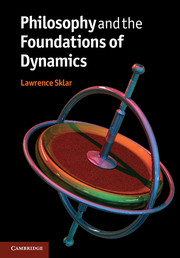Book contents
- Frontmatter
- Contents
- Chapter 1 Introduction
- Chapter 2 The pre-history of classical dynamics
- Chapter 3 The astronomical revolution
- Chapter 4 Precursors to Newtonian dynamics
- Chapter 5 The Newtonian synthesis
- Chapter 6 Philosophical aspects of the Newtonian synthesis
- Chapter 7 The history of statics
- Chapter 8 The development of dynamics after Newton
- Chapter 9 The “Newtonian” approach after Newton
- Chapter 10 From virtual work to Lagrange's equation
- Chapter 11 Extremal principles
- Chapter 12 Some philosophical reflections on explanation and theory
- Chapter 13 Conservation principles
- Chapter 14 Hamilton's equations
- Chapter 15 Canonical transformations, optical analogies and algebraic structures
- Chapter 16 The search for new foundations
- Chapter 17 New directions in the applications of dynamics
- Chapter 18 Spacetime formulations of Newtonian dynamics
- Chapter 19 Formalization: mass and force
- Chapter 20 Relationist dynamics
- Chapter 21 Modes of explanation
- Chapter 22 Retrospective and conclusions
- References
- Index
Chapter 19 - Formalization: mass and force
Published online by Cambridge University Press: 05 December 2012
- Frontmatter
- Contents
- Chapter 1 Introduction
- Chapter 2 The pre-history of classical dynamics
- Chapter 3 The astronomical revolution
- Chapter 4 Precursors to Newtonian dynamics
- Chapter 5 The Newtonian synthesis
- Chapter 6 Philosophical aspects of the Newtonian synthesis
- Chapter 7 The history of statics
- Chapter 8 The development of dynamics after Newton
- Chapter 9 The “Newtonian” approach after Newton
- Chapter 10 From virtual work to Lagrange's equation
- Chapter 11 Extremal principles
- Chapter 12 Some philosophical reflections on explanation and theory
- Chapter 13 Conservation principles
- Chapter 14 Hamilton's equations
- Chapter 15 Canonical transformations, optical analogies and algebraic structures
- Chapter 16 The search for new foundations
- Chapter 17 New directions in the applications of dynamics
- Chapter 18 Spacetime formulations of Newtonian dynamics
- Chapter 19 Formalization: mass and force
- Chapter 20 Relationist dynamics
- Chapter 21 Modes of explanation
- Chapter 22 Retrospective and conclusions
- References
- Index
Summary
The realization that a branch of knowledge could be presented in a form in which the entire contents of the field of investigation could be expressed by positing a small number of basic truths and by claiming that all the other truths of the discipline followed from these basic posits by pure deductive reasoning alone predated any serious development of dynamics or of other branches of physical science. The axiomatization of geometry has its origin at such an early date, in fact, that we have no good record of when or how the very idea of presenting geometry as a deductive formal discipline arose.
This early discovery of a branch of mathematics as a formal science had many consequences for the history of science and the history of philosophy of science. The entire history of the rationalist approach to knowledge in philosophy is founded on the early discovery that geometry could be structured as a set of consequences logically deducible from apparently “self-evident” first principles. Closer to our concerns, it is clear that Newton's Principia is itself structured to resemble as closely as possible the standard presentation of geometry. But there is, of course, no pretence on Newton's part that his first principles could themselves be established without reference to empirical experiment. (It was left to Kant to fall into the trap of trying to establish Newtonian dynamics as a fully a-priori science!)
- Type
- Chapter
- Information
- Philosophy and the Foundations of Dynamics , pp. 214 - 234Publisher: Cambridge University PressPrint publication year: 2012



